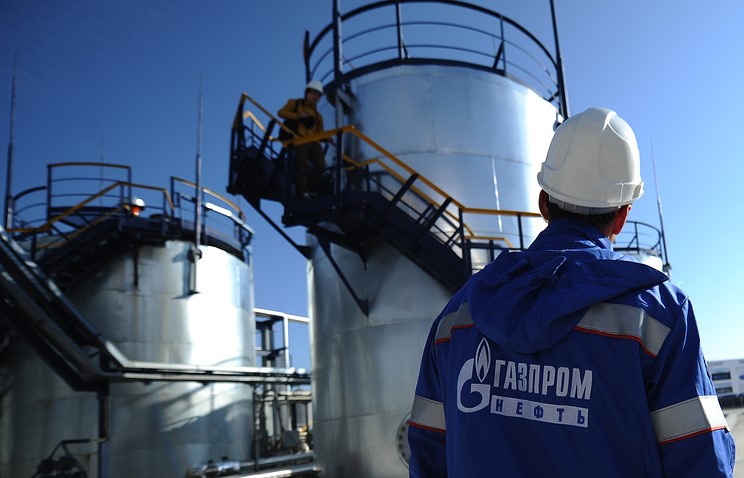Russia is a major energy exporter and a key player in the global energy market. Its importance in the global oil market is such that its collaboration with Saudi Arabia and other OPEC members to stabilize global global oil supply has been crucial since 2016.
Its critical role in the global refining industry is not often recognized. Russia has about 6.5 million barrels per day (bpd) of refining capacity, which is small compared to global capacity of over 102 million bpd. But it is an important player.
This is because Russia is a major exporter of refined products to the global market, supplying almost as much as the major Middle East suppliers. This is largely the result of government policy on export taxes.
This means that any changes to Russia’s taxation system is important as it determines the volume and quality of the refined products it exports to the global market.
Russian refining is primarily owned by private companies, some of whom have the Russian government as a major shareholder. As such, the role of the Russian government should be limited. This is definitely not the case, as the Russian government operates a complex system of taxes and tariffs that affect Russian refining economics and the amount of crude it processes.
The basic mechanism by which the government influences the refining system is via export tax. The export tax varies by product, but it is usually a set at a lower level for refined products than crude. This makes it economic for the Russian crude producers to refine the crude, operating their refineries at high rates and export the products rather than crude, as this reduces their overall export tax payment and increases company earnings.
The configuration of the Russian refineries typically resulted in more diesel/gas oil and residue streams (some fuel oil, but mostly intermediate streams) being produced than required domestically, so the surpluses were exported. The diesel/gas oil is exported to Europe, with much of the intermediate residue streams exported to the U.S. Gulf Coast, which has a sophisticated refining system that can convert them into high-value fuels such as gasoline. The surplus fuel oil is typically exported to Singapore – one of the world’s largest ports – as bunker fuel for shipping.
Over the last five or so years, the Russian government has been carrying out the phased transition of the refined product export tax structure, making fuel oil and other intermediate streams less valuable and making high-quality transportation fuels more valuable to refiners. This spurred an investment wave which saw Russian companies upgrade their refineries. Most of the spending has been on cokers and hydrocrackers to convert low value fuel oil and intermediates into additional diesel/gas oil, which could find a ready home in neighboring Europe.
This investment in upgrading capacity is one of the key factors why high-sulfur fuel oil has become more valuable on a global basis. The supply of the fuel has been reduced through investment, narrowing it price discount to crude. OPEC and Russia’s supply restraint to bring the global crude oil market back into balance has also played its part. This means that European and U.S. refiners who invested in process units to upgrade the low-value intermediate stream have not seen the high returns they would have expected during refining’s “golden age” in 2003-2005.
However, times have changed and Russia is reconsidering its hydrocarbon taxation policy.
Our assessment is that the Russian government has a desire to see the country to have a globally competitive refining system and be self sufficient in gasoline. The upgrades carried out so far largely achieve this. Export taxes on refined products that are linked to the taxation on crude oil is a blunt instrument to influence refiner behavior, which the Russian government appears to now acknowledge.
The Russian government is planning stop the export duty tax system and introduce a system of rebates. This should ensure refiners continue to process enough crude to satisfy domestic demand without increasing local retail prices.
But this move will have a number of implications.
Investments currently planned, but not underway, will likely not proceed. This will reduce the growth in diesel/gas oil exports, which will help European refiners that could produce these volumes by running at higher utilization.
It ensures refinery complexity remains a key driver of value, as continued exports of high sulphur fuel oil and intermediate streams provides feedstock that can be upgraded by others. This also widens light heavy crude differentials.
It also means that a number of smaller, low complexity Russian refiners that have not upgraded face difficulties. They could become loss making and perhaps even potential candidates for closure is the losses are sustained.
Russian tax policy is, however, always changing and always uncertain as it is heavily influenced by the political process. It may be necessary for the tax policy to change again if Russia decides that refinery closure is not a desired outcome.
Source: Forbes
Image Courtesy: Oil and Gas People
You may also like
-
Beware! Chinese Hackers are Using VLC Media Player to Spy on You
-
Israel Participates in US Mideast Naval Exercise wih Saudi Arabia and Oman – IMX 22
-
Pakistani Establishment Controlling ‘Family Business’ of Selling Kashmir Narrative, Uses Issue as Survival Strategy: Report
-
After Suspending Twitter ‘Indefinitely’, Nigerian Govt Joins Made-In-India Microblogging Platform ‘Koo’
-
Pam Gosal, First Indian-Origin Woman to be Scottish Lawmaker
